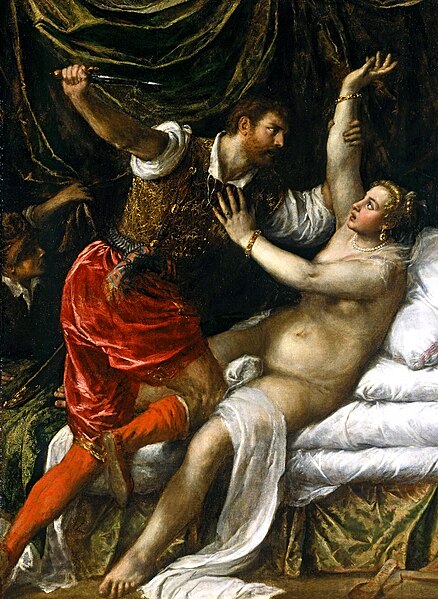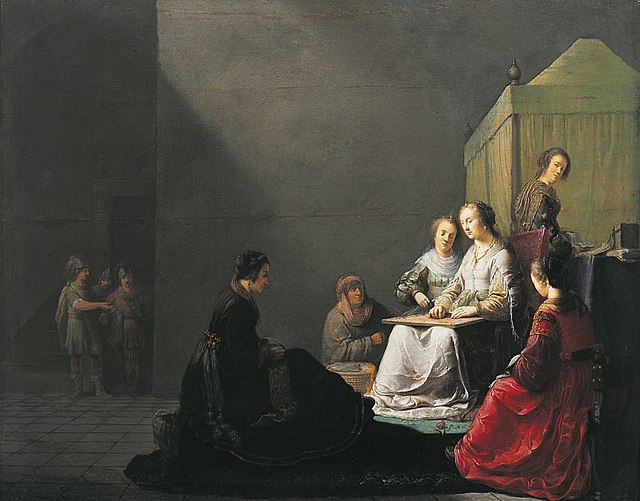According to Roman tradition, Lucretia, anglicized as Lucrece, was a noblewoman in ancient Rome. Sextus Tarquinius (Tarquin) raped her and her subsequent suicide precipitated a rebellion that overthrew the Roman monarchy and led to the transition of Roman government from a kingdom to a republic. After Tarquin raped Lucretia, flames of dissatisfaction were kindled over the tyrannical methods of Tarquin's father, Lucius Tarquinius Superbus, the last king of Rome. As a result, the prominent families instituted a republic, drove the extensive royal family of Tarquin from Rome, and successfully defended the republic against attempted Etruscan and Latin intervention.
Titian's Tarquin and Lucretia (1571), a depiction of Lucretia's rape by Sextus Tarquinius
Willem de Poorter's Lucrèce à l'ouvrage (1633), a less common depiction of Lucretia weaving with her ladies
Dead Lucrecia (1804), by Catalan sculptor Damià Campeny. Barcelona: Llotja de Mar.
Lucrecia, 1525, Monogrammist I.W. active in the Cranach studio c. 1520–1540. Lucretia wielding a dagger before her suicide.
Freeborn women in ancient Rome were citizens (cives), but could not vote or hold political office. Because of their limited public role, women are named less frequently than men by Roman historians. But while Roman women held no direct political power, those from wealthy or powerful families could and did exert influence through private negotiations. Exceptional women who left an undeniable mark on history include Lucretia and Claudia Quinta, whose stories took on mythic significance; fierce Republican-era women such as Cornelia, mother of the Gracchi, and Fulvia, who commanded an army and issued coins bearing her image; women of the Julio-Claudian dynasty, most prominently Livia and Agrippina the Younger, who contributed to the formation of Imperial mores; and the empress Helena, a driving force in promoting Christianity.

The educated and well-traveled Vibia Sabina (c. 136 AD) was a grand-niece of the emperor Trajan and became the wife of his successor Hadrian; unlike some empresses, she played little role in court politics and remained independent in private life, having no children and seeking emotional gratification in love affairs
Roman girls playing a game
Bronze statuette of the 1st century depicting a girl reading
Bust of a Roman girl, early 3rd century








